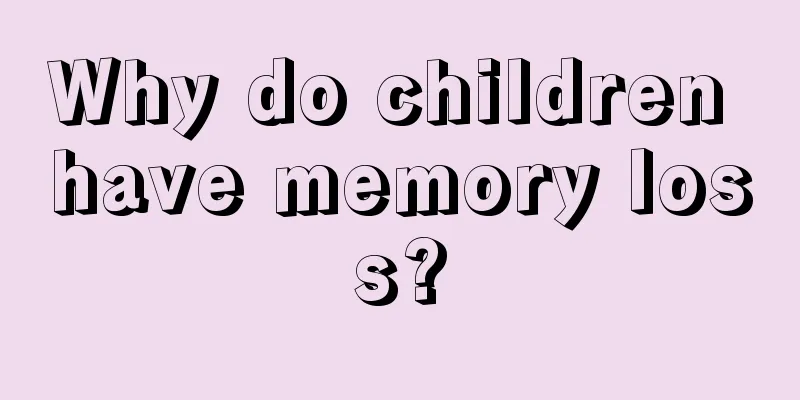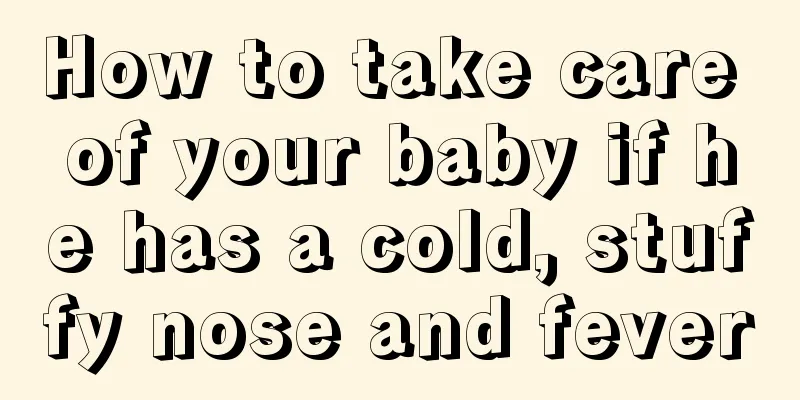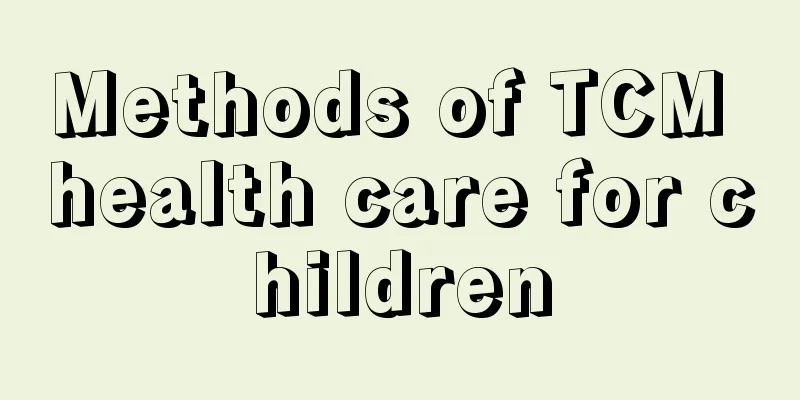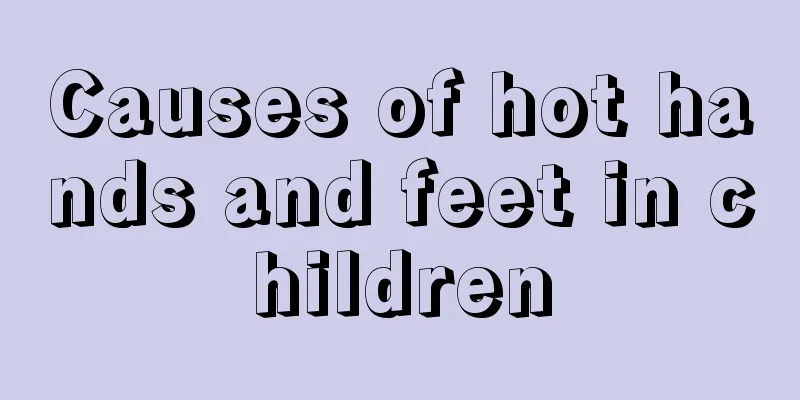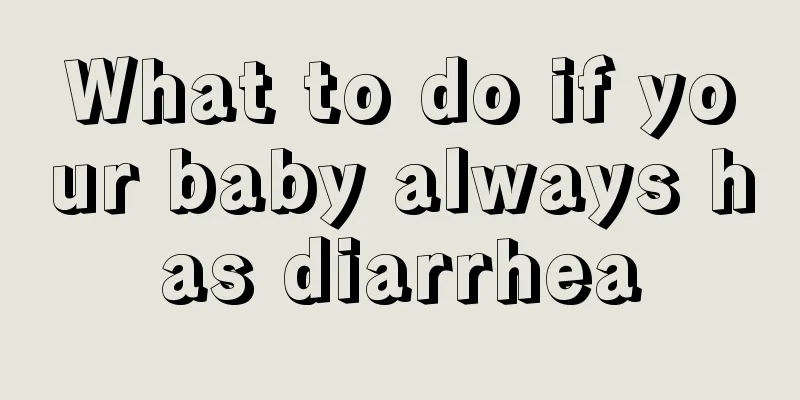Symptoms and treatment of anxiety in children
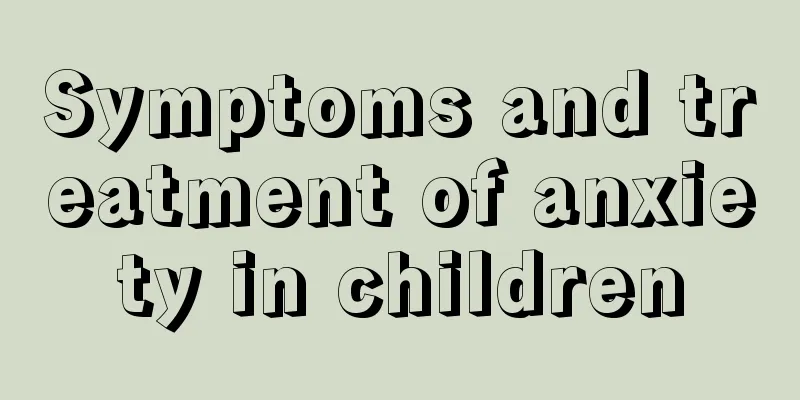
|
In today's society, more and more children have never left their parents since birth. Once they leave their parents, they will experience separation anxiety and restlessness. As new parents, it is difficult to tell whether their children suffer from separation anxiety disorder. If you want to completely improve your child's anxiety, you need to gradually divert your child's attention away from his or her parents. This article introduces the main clinical manifestations of anxiety disorder. Let’s take a look. The main manifestations of anxiety disorder are anxious mood, restless behavior and autonomic nervous system dysfunction. Children of different ages present with different symptoms. Young children may show symptoms of crying and irritability; preschool children may show fear, reluctance to leave their parents, crying, tossing and turning, and may be accompanied by loss of appetite, vomiting, sleep disorders, and bedwetting; school-age children may have difficulty concentrating in class, have poor academic performance, and be unwilling to interact with classmates and teachers, or they may have conflicts with classmates due to anxiety and irritability, and then refuse to go to school or run away from home. The main symptoms of autonomic nervous system dysfunction are sympathetic and parasympathetic nervous system excitement, such as chest tightness, palpitations, shortness of breath, sweating, headache, nausea, vomiting, abdominal pain, dry mouth, cold limbs, frequent urination, insomnia, and nightmares. Clinical classification According to the onset form, clinical characteristics and course of the disease, it can be clinically divided into panic attacks and generalized anxiety disorder. Panic attack is an acute anxiety attack with a short duration and characterized by sudden onset of intense tension, fear, irritability and restlessness, often accompanied by obvious autonomic nervous system dysfunction. Generalized anxiety disorder is a widespread and persistent anxiety disorder. The degree of anxiety is mild, but it lasts for a long time. Children with this disorder are nervous in class, afraid of being asked questions by teachers, afraid of poor grades, etc. There are also manifestations of autonomic nervous system dysfunction. According to the causes and clinical characteristics, it is divided into separation anxiety, excessive anxiety reaction and social anxiety. Separation anxiety is more common in preschool children, and manifests as deep uneasiness when separated from their loved ones, worry that misfortune will happen after their loved ones leave, refusing to go to bed when their loved ones are not around, refusing to go to kindergarten or school, and crying and showing symptoms of autonomic nervous system dysfunction when their loved ones are reluctantly sent. Excessive anxiety reactions manifest themselves as excessive worry, concern, and unrealistic concerns about the future. It is more common in school-age children, who worry about poor academic performance, are afraid of the dark and loneliness, and often feel upset and anxious about trivial matters. Children with this disorder often lack self-confidence, are sensitive to things, and have symptoms of autonomic nervous system dysfunction. Children with social anxiety show persistent and excessive nervousness, fear, and attempts to avoid when interacting with others or in new environments. They are afraid to go to kindergarten or school and have obvious social and adaptation difficulties. Psychological treatment is the main treatment, supplemented by drug treatment. First, understand and eliminate the causes of anxiety, improve the family and school environment, create an adaptation process and environment that is conducive to the children, reduce the children's stress, and enhance their self-confidence. Cognitive therapy can achieve good results for children over 10 years old. Relaxation therapy can reduce the level of physiological alertness to relieve tension and anxiety, but young children have difficulty understanding and self-regulating this treatment, so it is not easy to carry out. However, game and music therapy can achieve certain therapeutic effects. For parents with anxious tendencies, they must also receive treatment in order to help them realize the negative impact their own personality weaknesses have on their children. Children with severe anxiety disorders should be treated with anti-anxiety drugs, such as buspirone, benzodiazepines such as diazepam, lorazepam, alprazolam, and antidepressants such as doxepin, citalopram, sertraline, etc. |
<<: What to do if your child has separation anxiety
>>: What are the educational methods for 2-year-old babies?
Recommend
Children's toenails are concave
Each of us is a different individual, and everyon...
What does patent ductus arteriosus mean in newborns?
The arrival of a child makes many families happy,...
What to do if your child has a fever at night
We all know that children's body functions ar...
How to rehydrate infants with diarrhea and dehydration
Diarrhea in babies is a common occurrence. Some o...
What are the precautions for babies to eat sugar pills?
The so-called sugar pill is a vaccine, which is a...
My child's night terrors are finally cured. How to prevent them?
The physical health of children is a very importa...
When is the best time to wean your baby?
When the baby is still in the mother's womb, ...
Diet therapy for children's colds and flu
Once a child catches a cold, parents will be very...
What to do if your four-year-old baby has a stomachache
When taking care of your baby, you must do it in ...
Is there a white spot on the child's forehead vitiligo?
When white spots appear on the child's forehe...
What is the best food for children with low blood sugar?
Hypoglycemia usually occurs in middle-aged people...
Adverse reactions to rabies vaccination in children
Children's physical condition is very weak, e...
Prevention of paronychia in children
If a child suffers from paronychia, it will cause...
Exercises that help children grow taller
Parents all hope that their children can grow tal...
What should I do if my child vomits everything he eats or drinks?
When children vomit everything they eat, parents ...

